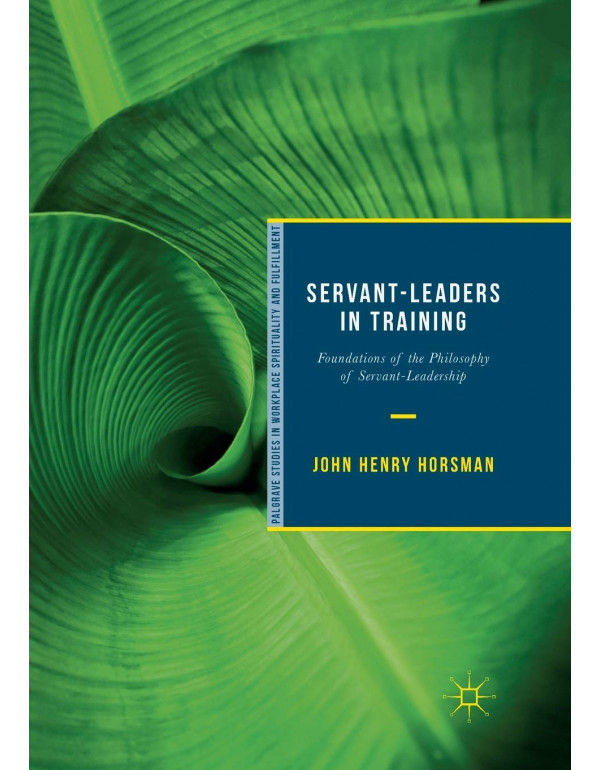- Type: Paperback Book.
- Publisher:
- Pages: 196
Servant-Leaders in Training: Foundations of the Philosophy of Servant-Leadership (1st Edition, 2018)
Author: John Henry Horsman
Overview:
This book delves into the core principles of servant-leadership, aiming to equip readers for leadership roles grounded in service to others. It expands on the work of Robert K. Greenleaf, the pioneer of servant-leadership theory, proposing a developmental framework for cultivating servant-consciousness and leadership skills.
Key Themes:
- Servant-leadership philosophy: Explores the core tenets of servant-leadership, emphasizing the leader's role in empowering and supporting followers.
- Human development foundation: Views leadership development as an ongoing process of personal growth and self-awareness.
- Developing servant-consciousness: Provides guidance on fostering the characteristics and mindset essential for servant-leadership.
- Five primary capacities of servant-leaders: Identifies and analyzes key capabilities crucial for effective servant-leadership, including listening, foresight, and empathy.
- Spiritual foundation of workplaces: Considers the potential for workplaces to foster purpose, meaning, and a sense of community.
Features:
- First edition: Lays a foundational framework for understanding and practicing servant-leadership.
- Grounded in Greenleaf's work: Builds upon the ideas of Robert K. Greenleaf, a seminal figure in servant-leadership theory.
- Focus on development: Offers a practical guide for leaders to cultivate their servant-leadership capabilities.
- Holistic approach: Integrates personal growth, leadership skills, and the importance of human connection in workplaces.
- Clear and engaging writing: Makes complex concepts accessible to a broad audience.
Target Audience:
- Aspiring and current leaders in various fields
- Human resource professionals and leadership development specialists
- Individuals interested in fostering servant-leadership qualities
- Anyone seeking to create a more purpose-driven work environment
Strengths:
- Comprehensive: Provides a well-rounded exploration of servant-leadership philosophy and its practical application.
- Action-oriented: Offers concrete steps and exercises for developing servant-leadership skills.
- Focus on personal growth: Emphasizes the importance of self-awareness and self-improvement for effective leadership.
- Integrates diverse perspectives: Draws on insights from leadership studies, psychology, and philosophy.
- Promotes a positive workplace culture: Encourages leaders to build trust, collaboration, and a sense of community within organizations.
Chapter Headlines: (Examples only, may vary in the actual book)
- Part I: Foundational Concepts
- Chapter 1: Servant-Leadership: A Profoundly Relational, Creative, Holistic, and Integrative Approach
- Chapter 2: Human Development: The Grounding for Servant-Leadership
- Chapter 3: Leadership Development: A Servant-Leadership Perspective
- Part II: Core Characteristics of Servant-Leaders
- Chapter 4: Empathetic and Moral: The Foundation of Trust
- Chapter 5: Listen-First Seeking Clarity Before Influence: The Power of Listening
- Chapter 6: Pathfinding-Foresight and Systems Thinking: Leading with Vision
- Part III: Putting Servant-Leadership into Practice
- Chapter 7: (Chapter title may vary depending on the book)
- Chapter 8: (Chapter title may vary depending on the book)
- Closing Chapter: The Continuing Journey of Servant-Leaders
Closing Paragraph:
"Servant-Leaders in Training" serves as a valuable resource for anyone who aspires to lead with compassion, purpose, and a commitment to the growth of others. By fostering servant-consciousness and the key capabilities explored within this book, leaders can contribute to creating more positive, fulfilling, and successful workplaces.
 4.2 (16) Reviews
4.2 (16) Reviews
